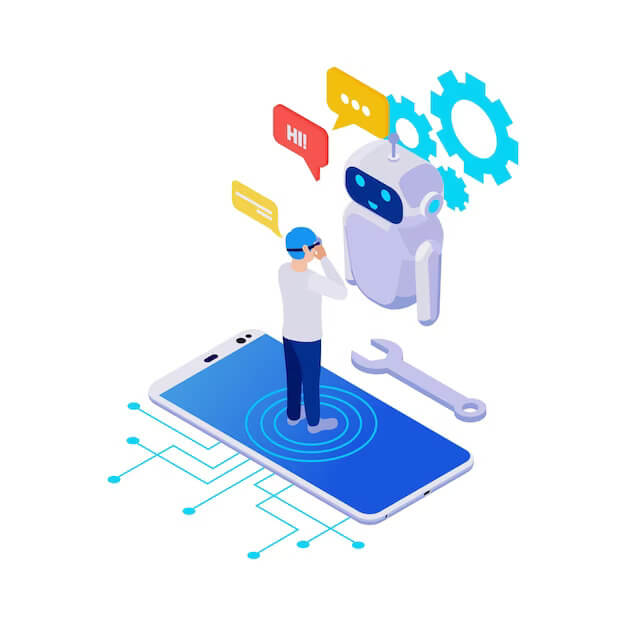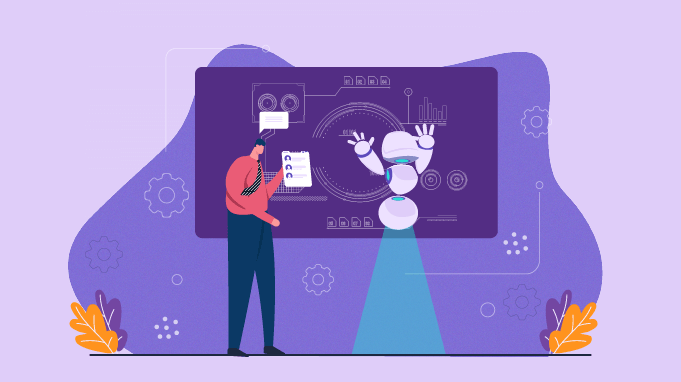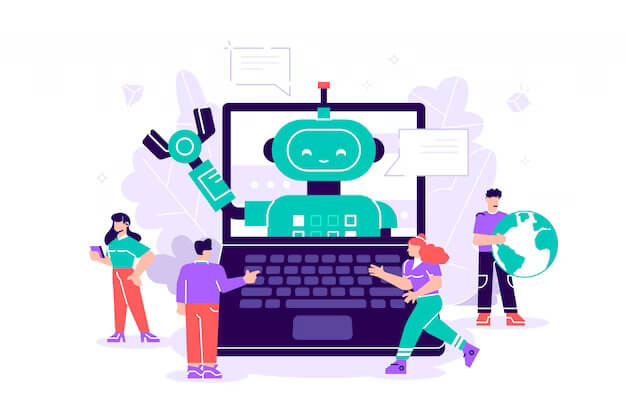AI Job Market for Recent Graduates: Entry-Level Positions and Career Pathways

Are you a recent graduate eager to dive into the exciting world of artificial intelligence (AI)? The AI job market is buzzing with opportunities for newcomers like you. But before you take the plunge, it’s essential to understand the landscape and the career pathways available in this rapidly evolving field. In this comprehensive guide, we’ll walk you through the AI job market for recent graduates, explore various entry-level positions, and provide insights into building a successful career in AI.
What Is the AI Job Market Like for Recent Graduates?
Before we delve into the specific roles and career paths, let’s take a closer look at the AI job market for recent graduates.
Is the AI Job Market Booming for Recent Graduates?
In one word: absolutely! The AI industry is experiencing exponential growth, and organizations across various sectors are embracing AI technologies to gain a competitive edge. The demand for AI talent has never been higher, making it an ideal time for recent graduates to step in.
What Makes AI So Attractive for Recent Graduates?
There are several factors that make the AI job market highly appealing to recent graduates:
- High Salaries: AI professionals command some of the highest salaries in the tech industry, even at the entry level.
- Innovation: Working in AI means being at the forefront of technological innovation, which can be incredibly rewarding.
- Diverse Applications: AI is not limited to a single industry. It’s used in healthcare, finance, gaming, and more, offering diverse career opportunities.
- Global Demand: AI skills are in demand worldwide, opening up possibilities for international work experience.
Entry-Level Positions in the AI Field
Now that you’re convinced of the potential, let’s explore some of the exciting entry-level positions in the AI field:
- Data Analyst
- Responsibilities: Data analysts collect, clean, and analyze data to extract valuable insights.
- Skills Needed: Strong analytical and data visualization skills, proficiency in tools like Python, R, or SQL.
- Career Growth: Data analysts often move on to roles like data scientist or machine learning engineer.
- Machine Learning Engineer
- Responsibilities: Machine learning engineers design and implement machine learning models.
- Skills Needed: Proficiency in programming languages like Python, knowledge of machine learning libraries, and experience with data preprocessing.
- Career Growth: Progression to roles like AI researcher or data scientist is common.
- Natural Language Processing (NLP) Specialist
- Responsibilities: NLP specialists work on tasks like language translation, sentiment analysis, and chatbot development.
- Skills Needed: Strong programming skills, familiarity with NLP libraries like NLTK or SpaCy, and linguistic knowledge.
- Career Growth: Opportunities to specialize further in areas like speech recognition or conversational AI.
- Computer Vision Engineer
- Responsibilities: Computer vision engineers develop algorithms for image and video analysis.
- Skills Needed: Proficiency in computer vision libraries like OpenCV, deep learning frameworks like TensorFlow or PyTorch, and a strong math background.
- Career Growth: Advancement to roles involving autonomous vehicles or robotics.
- AI Ethics and Bias Analyst
- Responsibilities: These professionals focus on ensuring AI systems are fair, unbiased, and ethical.
- Skills Needed: A strong understanding of ethics in AI, data analysis skills, and knowledge of fairness metrics.
- Career Growth: Opportunities to become an AI ethics consultant or researcher.
Career Pathways for Recent Graduates in AI

As a recent graduate, you might be wondering about the long-term prospects and career pathways in AI. Let’s shed light on that:
- Specialization and Skill Development: AI is a vast field with many subdomains. You can specialize in areas like reinforcement learning, generative adversarial networks (GANs), or autonomous systems. Continuous skill development through online courses, workshops, and certifications is essential to stay competitive.
- Pursue Advanced Degrees: Consider pursuing a master’s or Ph.D. in AI-related fields if you aspire to research or take on leadership roles. Advanced degrees can open doors to academia, research labs, and higher-paying positions.
- Industry Transition: AI is not confined to tech companies. Industries such as healthcare, finance, and agriculture are actively integrating AI. Transitioning to an industry-aligned AI role can provide unique challenges and opportunities.
- Entrepreneurship: If you have innovative AI ideas, consider starting your own AI-related venture. The startup landscape in AI is thriving, and entrepreneurship can be a rewarding path.
- Mentorship and Networking: Building a strong professional network and seeking mentorship from experienced AI professionals can accelerate your career growth. Attend conferences, join AI communities, and connect on platforms like LinkedIn.
Keys to Success in the AI Job Market
To thrive in the AI job market, recent graduates should keep the following key points in mind:
- Build a Strong Portfolio: Create a portfolio showcasing your AI projects and contributions. It’s a tangible way to demonstrate your skills to potential employers.
- Stay Updated: AI is a dynamic field, with new technologies and techniques emerging regularly. Stay updated with the latest trends and research papers.
- Problem-Solving Skills: AI professionals are problem solvers. Develop your ability to tackle complex issues and communicate your solutions effectively.
- Soft Skills Matter: In addition to technical skills, soft skills like teamwork, communication, and adaptability are highly valued in the workplace.
- Real-World Experience: Internships and part-time jobs related to AI can provide invaluable real-world experience and help you network within the industry.
Landing Your First AI Job
Now that you’re equipped with insights into the AI job market and career pathways, let’s discuss strategies for landing your first AI job:
- Tailor Your Resume and Cover Letter: Customize your application materials to highlight relevant skills and projects. Showcase your passion for AI in your cover letter.
- Prepare for Technical Interviews: AI job interviews often include technical assessments and coding challenges. Practice coding problems and review AI concepts.
- Leverage Internships: If you’ve completed AI internships during your studies, leverage those experiences and ask for references from your supervisors.
- Network Actively: Attend AI meetups, conferences, and online forums. Networking can lead to job referrals and valuable insights.
- Be Persistent: Job hunting can be challenging, but persistence pays off. Don’t get discouraged by rejections; keep improving and applying.
AI Job Market Outlook

As AI continues to transform industries and societies, the job market for recent graduates in this field remains promising. The demand for AI talent is unlikely to diminish, and opportunities for growth and innovation abound.
So, if you’re a recent graduate with a passion for artificial intelligence, the AI job market welcomes you with open arms. Start building your skills, network with like-minded professionals, and embark on a rewarding career in the world of AI.
In summary, the AI job market for recent graduates offers a plethora of entry-level positions and diverse career pathways. With determination, continuous learning, and a passion for AI, you can carve out a successful and fulfilling career in this dynamic field.
Frequently Asked Questions (FAQ) – AI Job Market for Recent Graduates
Here are some common questions that recent graduates often have about the AI job market, entry-level positions, and career pathways:
Q1: What is the AI job market like for recent graduates?
A1: The AI job market for recent graduates is thriving. With the increasing adoption of AI technologies across industries, there is a high demand for AI talent. This demand translates into numerous opportunities for recent graduates to secure entry-level positions and kickstart their AI careers.
Q2: What makes AI an attractive field for recent graduates?
A2: AI offers several attractive features for recent graduates, including high salaries, opportunities for innovation, diverse applications across industries, and a global demand for AI skills. These factors make AI an enticing choice for those looking to enter the tech workforce.
Q3: What are some entry-level positions in the AI field?
A3: Some entry-level positions in the AI field include:
- Data Analyst
- Machine Learning Engineer
- Natural Language Processing (NLP) Specialist
- Computer Vision Engineer
- AI Ethics and Bias Analyst
These roles serve as stepping stones to more specialized positions as you gain experience and expertise.
Q4: What are the key skills needed to excel in the AI job market?
A4: To excel in the AI job market, you should have strong programming skills, proficiency in relevant programming languages (such as Python), a solid understanding of machine learning or NLP concepts, and data analysis skills. Additionally, soft skills like problem-solving, teamwork, and communication are highly valued.
Q5: What are the career pathways available for recent graduates in AI?
A5: The career pathways in AI are diverse and can include specialization in areas like machine learning, NLP, or computer vision, pursuing advanced degrees, transitioning to AI roles in specific industries, entrepreneurship, and seeking mentorship and networking opportunities.
Q6: How can recent graduates build a strong portfolio for AI roles?
A6: Building a strong portfolio involves working on AI projects, contributing to open-source initiatives, and showcasing your work on platforms like GitHub. Include detailed descriptions of your projects, the problems you solved, and the impact of your work in your portfolio.
Q7: What should recent graduates do to prepare for technical interviews in AI?
A7: Preparing for technical interviews in AI involves reviewing AI concepts, practicing coding problems related to machine learning, NLP, or computer vision, and understanding the algorithms commonly used in AI. Online resources, coding platforms, and AI-focused courses can be invaluable for interview preparation.
Q8: How important is networking in the AI job market?
A8: Networking is crucial in the AI job market. Attending AI meetups, conferences, and online forums allows you to connect with professionals in the field, gain insights, and discover job opportunities. Networking can lead to job referrals and mentorship, making it a valuable aspect of building a successful AI career.
Q9: Is it necessary to pursue advanced degrees in AI to advance in this field?
A9: Pursuing advanced degrees like a master’s or Ph.D. in AI-related fields can be beneficial for those interested in research or leadership roles. However, it’s not always necessary to advance in the AI field, as many professionals build successful careers with bachelor’s degrees and continuous skill development.
Q10: What is the future outlook for the AI job market?
A10: The future outlook for the AI job market remains optimistic. AI continues to drive innovation and transformation across industries, ensuring a sustained demand for AI talent. Recent graduates entering the field can expect a dynamic and rewarding career with ample opportunities for growth and impact.